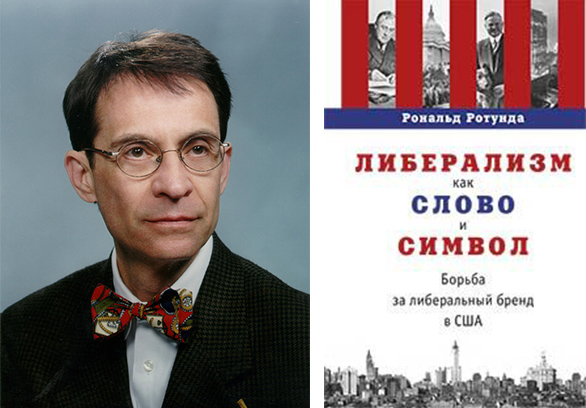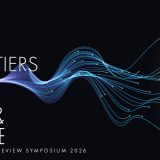
Professor Rotunda Publishes Russian Edition on The Politics of Language
November 29, 2016
Chapman University Dale E. Fowler School of Law Professor Ronald Rotunda recently published Либерализм как слово и символ : борьба за либеральный бренд в США [The Politics of Language: Liberalism as Word and Symbol] (Социум, 2016) in Russia. The book was originally published by the University of Iowa Press in 1986.
From the Russian publisher’s description (translated from Russian):
Words both reflect and mold the way we think. Rotunda’s study, The Politics of Language: Liberalism as Word and Symbol, probably the only one of its kind, explains how there was a mysterious change of meaning of the words “liberal” and “liberals” in the United States, so that today, people we think of as liberals routinely favor extensive state intervention in the economy.
The author shows that this did not happen by itself, but because of deliberate action by Franklin Delano Roosevelt and his brain trust who were looking for a suitable verbal symbol for his program of economic regulation. To this end, he chose not to use “progressive,” a term reformers used earlier, but a new label, “liberal,” with its connotations of freedom, tolerance, and generosity.
At the same time, Herbert Hoover and his party lost the claim to that symbol, in the course of election campaigns from 1932-1940. That historic story is the plot of the book’s center, but it is preceded by interesting reflections on the role and use of symbols in politics that led to the evolution of the word “liberal” and “liberals.” What was the label for Adam Smith economics in Britain became the label for a socio-economic program [in] the United States during in the XIX-XX centuries.
Words matter, whether or not we know that. As the great linguist, Benjamin Whorf explained, “Natural man, whether simpleton or scientist, knows no more of the linguistic forces that bear upon him than the savage knows of gravitational forces.”
Ronald D. Rotunda is the Doy and Dee Henley Chair and Distinguished Professor of Jurisprudence at Chapman University Dale E. Fowler School of Law and a nationally recognized expert in constitutional law. Among his numerous publications, he is the author of a leading course book on constitutional law, Modern Constitutional Law: Cases and Notes (West Thomson Reuters), a co-author (with John E. Nowak) of the seven-volume Treatise on Constitutional Law: Substance and Procedure (Thomson West), a co-author (with John E. Nowak) of Principles of Constitutional Law (West Thomson Reuters), and a co-author (with John E. Nowak) of the one-volume treatise Constitutional Law (Thomson West). Most recently, he authored two textbooks on constitutional law, Rotunda’s American Constitutional Law: The Supreme Court in American History Volume 1 – Institutional Powers (West Academic Publishing 2016) and Rotunda’s American Constitutional Law: The Supreme Court in American History Volume 2 – Liberties (West Academic Publishing 2016).
He has also co-authored the most widely used course book on legal ethics, Problems and Materials on Professional Responsibility (Foundation Press), and is the co-author of Legal Ethics: The Lawyer’s Deskbook on Professional Responsibility (ABA-West Group). He has written several other books and more than 350 articles in various law reviews, journals, newspapers, and books in this country and in Europe. His works have been translated into French, German, Romanian, Czech, Russian, Japanese, and Korean.
These books and articles have been cited more than 1,000 times by state and federal courts at every level, from trial courts to the U.S. Supreme Court. He has served as Commissioner of the Fair Political Practices Commission and has been a Distinguished International Research Fellow at the World Engagement Institute.
Prior to joining Chapman in 2008, he was a University Professor and Professor of Law at George Mason University School of Law and the Albert E. Jenner, Jr. Professor of Law at the University of Illinois, where he served for 28 years. He clerked for Judge Walter R. Mansfield of the United States Court of Appeals for the Second Circuit and practiced law in Washington, D.C., where he served as assistant majority counsel for the Watergate Committee. He earned a Bachelor of Arts from Harvard University and a JD from Harvard Law School, where he was a member of the Harvard Law Review.

